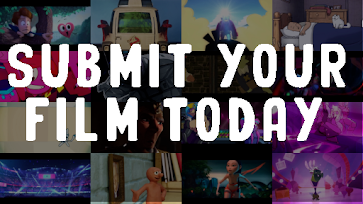Over The Moon (2020)
If you've ever loved any of the Disney films of the renaissance era, then there's a good chance that Glen Keane had something to do with that. Over a long and storied career at the mouse house, he was responsible for design and animation on some of the most iconic characters in animation history. Ariel from The Little Mermaid, The Beast from Beauty and The Beast, and the titular character from Aladdin are just some of them. So how could it be that it has taken until now for him to step into the director's chair? Keane was actually due to direct the film that became Tangled but had to step away for personal reasons. Since leaving Disney back in 2012, he directed a pair of shorts, including the Oscar-winning Dear Basketball. After which he finally got his opportunity to direct a feature, when he signed on to helm Over The Moon.
Over The Moon was produced by Pearl Studio, the China-based animation company formally known as Dreamworks Oriental and animated by Sony Pictures Imageworks. The screenplay was written by the late Audrey Wells and is a modern retelling of a classic Chinese myth. In 2018 Netflix picked up the global distribution rights for all territories excluding China.
As a very young girl, Fei Fei loved to listen to her beloved mother's stories of the Moon Goddess. Four years later, her mum has passed away, but Fei Fei holds onto her tales, despite being told they're nothing but stories. As the annual Moon Festival approaches, and on learning her Dad plans to remarry, Fei Fei builds a rocket to the moon to prove that the Goddess is real once and for all.
Unsurprisingly for a film made by someone who spent so many years at Disney, the film does have a familiar Disney-esque feel. A big part of this is no doubt the fact that this is an animated musical- not many other studios even dare to attempt them, and none have done so as successfully. Beyond that, there are numerous other familiar elements you would expect to see in any Walt Disney Animation Studio film, such as a comedy sidekick, cute mascot characters, and tear-jerking sequences.
Inviting such comparisons could be asking for trouble, as numerous films who attempted to replicate the renaissance era films found to their costs. But in the hands of an experienced artist such as Keane, this is no pale imitation.
The dead parent (or parents) trope has become so familiar in children's and young adult fiction to the point of cliche. But Over The Moon is one of those cases where they actually take the time to let you invest in their relationship before they're cruelly taken away. In other films, it's just part of the backstory, or waved away during a song or montage- but here it's allowed to actually hit home. Fei Fei's mum's passing happens off-screen and its explicit cause is never explained. We're clued into what has happened through incredibly subtle visual storytelling. The family is so warmly drawn that it has that much more impact when it's torn apart. It's a serious subject and the film handles it perfectly.
Enough time has passed that her Dad has found someone new, but Fei Fei's reaction to the news- and to the sudden introduction of a little brother- is completely understandable. For all the fantastic elements the film has, at its heart is a very real, very relatable story of a family. There will be many in the audience who will have been through something very similar.
Followers of Keane's career might have felt a little trepidatious about seeing a man who worked almost his whole life in traditional animation moving into 3DCG. Or even a little sad about him leaving it behind. They'll be delighted to discover that the film does actually contain a beautiful hand-drawn sequence early on to depict the story of the legend of the Moon Goddess.
Otherwise, though, Keane's transition to the new medium is a smooth one. The director is credited with character design (alongside Jon Kim and Brittany Myers) and his influence can clearly be seen. The human character designs are good and varied, but it is in the non-humans is where the design work really takes off. Chinese lions, biker chick(en)s, jade rabbits, and more alien critters than you could possibly count, the film is overflowing with fantastically imaginative creations. And of course, the lunar Goddess herself cuts quite the figure: at once beautiful and imposing, part deity, part pop-star. But most importantly, we have Bungee, Fei Fei's loyal companion and quite possibly the cutest bunny ever committed to film. Yet it's in the character animation and acting, full of personality and life, that Keane's influence really shines through.
While in style and execution the film feels pretty American, that's not to say it wastes its Chinese setting. The set design and backgrounds are used to beautifully create a sense of place and to portray everyday Chinese family life. It's used to beautiful effect in sequences where Fei Fei is rushing or cycling through the town, making it really feel like a real, lived-in location.'
The way that the family life is depicted has a sense of authenticity to it, feeling at once specifically Chinese and universally relatable. All this is with the caveat that is coming from the perspective of a white westerner and I can't speak for real Chinese people or people of Asian background. But at least to me, it seems that all the cultural elements have been handled with the utmost respect and sensitivity.
When we arrive on the moon, the Chinese influence is still there but seems a lot lesser. Some elements, such as the wonderful Chinese fire lions clearly come from Chinese mythology. Others seem much more western influenced. The spectacular palace of Lunaria is more reminiscent of Wreck-It Ralph, Coco or Inside Out than anything found in Eastern folklore.
The voice cast (and casting) is strong across the board. Relative newcomers Cathy Ang and Robert G. Chiu do admirable work as Fei Fei and Chin. Ruthie Ann Miles, Sandra Oh and especially John Cho (as Fei Fei's Dad) bring real warmth to their roles as parental figures. Comedic actor Ken Jeong is a natural fit for Gobi, the comedy sidekick, bringing gags aplenty, but underscored by a surprising vulnerability.
The musical side of the film is arguably its least memorable part. The song Rocket To The Moon, is the closest there is to a barnstormer here, and the Goddesses' song is a catchy K-Pop/J-Pop style number although it's memorable mainly for its accompanying visuals. The rest of the songs were perfectly pleasant but largely forgettable to be brutally honest. There are no Moana style belters here, sadly.
Where the film really distinguishes itself from others is in its climax. Of course, there needs to be a bit of peril in the film's final act, with our heroes in trouble. But the ultimate climax is no fight to the death. The Goddess kind of functions as an antagonist at times, but really the film has no villain. The key climactic scene is an emotional one and it all comes down to heart-to-heart conversation (through song) between Fei Fei and The Goddess.
You see, while other animated films use parental mortality as a storytelling prop, sticking it the opening act and never to be mentioned again, here it's the loss of her mother that drives Fei Fei's ambition. The story she told is like her last link to her mother which is why she is so invested in it. Grief is an important theme- not only is Fei Fei still grieving, but the Goddess still mourns the loss of her lover. Here death is not just some throwaway plot device. The film is ultimately about that loss, about learning to find a way to move on- and the theme is kept at the forefront until the very end.
To have that under the surface of what is for the most part a light and accessible family film is quite something. Which of course, should not give the impression that this is some serious and gloomy experience. It's still mostly light and fun, often very funny and full of impressive visuals that will appeal to audiences of all ages.
Over The Moon joins Klaus and The Willoughbys in an impressive starting line-up of Netflix's original animated features. It's probably the most mainstream of the three but is no lesser worthy of praise for that.
The film is exquisitely animated, emotionally affecting, and always entertaining. It may have been a long wait for Glen Keane to direct a feature, but boy was it ever worth the wait.
★★★★★





























